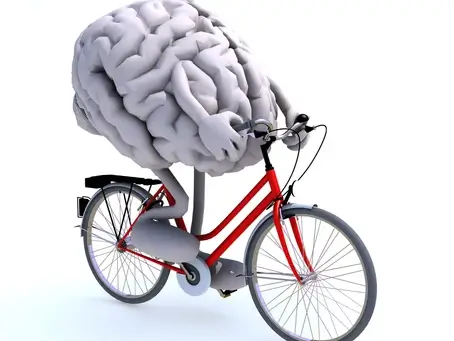Forget the energy drinks when you need some brain power – hit the footpath instead!

This image shows us how effective exercise can be for boosting brain function – even after just a 20 minute walk!
Below we have detailed more benefits of exercise on your brain, including:
-
Exercise helps memory and thinking through both direct and indirect means. The benefits of exercise come directly from its ability to reduce insulin resistance, reduce inflammation, and stimulate the release of growth factors—chemicals in the brain that affect the health of brain cells, the growth of new blood vessels in the brain, and even the abundance and survival of new brain cells.
-
Indirectly, exercise improves mood and sleep, and reduces stress and anxiety. Problems in these areas frequently cause or contribute to cognitive impairment.
-
A study from the University of Illinois saw a positive link between physical activity and the microstructures of “white matter” in the brain. This healthy white matter is linked to faster neural conduction between brain regions and superior cognitive performance.
-
The part of the brain that responds strongly to aerobic exercise is the hippocampus. Studies show that this brain structure grows as people get fitter! Since the hippocampus is at the core of the brain’s learning and memory systems, this finding partly explains the memory-boosting effects of improved cardiovascular fitness.
-
Studies on men and women aged 60 to 80 found that taking a short walk 3 times a week increased the size of brain regions linked to planning and memory over the course of a year. The prefrontal cortex and hippocampus increased in size by only 2% or 3%, but that was enough to offset the steady shrinkage doctors expected to see over the same period. “It may sound like a modest amount but that’s actually like reversing the age clock by about one to two years,” said Professor Kirk Erickson, a neuroscientist at the University of Pittsburgh.
-
According to the Alzheimer’s Research & Prevention Foundation, regular physical exercise can reduce your risk of developing Alzheimer’s disease by up to 50%.
-
Motivation, attention and perception are improved.
-
Blood flow to the brain increases, delivering more oxygen & nutrients and improving waste removal.
-
Enhanced mood due to the release of serotonin – one of the brain’s “happy chemicals”.
There are many ways to incorporate the brain-boosting benefits of exercise into your day. Movement comes in many forms, including, but certainly not limited to, the following suggestions:
-
Social sports
-
Gym classes – everything from a HIIT workout, pilates, Zumba, jungle body, bodypump or a circuit class!
-
Going to the gym
-
Walking the dog
-
Going for a walk before/after work, or on your lunch break
-
Parking further away at the shops
-
Getting off a stop earlier when using public transport
-
A 10 minute stretch break during your work day
-
A workout in your backyard or lounge room
-
Taking the stairs instead of the escalator or elevator
-
A bike ride
-
Walking to the shops instead of driving
-
A game of cricket or footy in the park
-
Walk around the office when taking calls rather than staying seated
-
Meet friends for takeaway coffee, then walk + chat for a catch up
-
Do an extra lap of the shopping centre
What will you try this week?
If you think your workforce could use more support in this area, don’t hesitate to get in touch!


